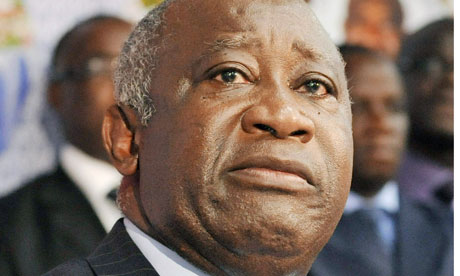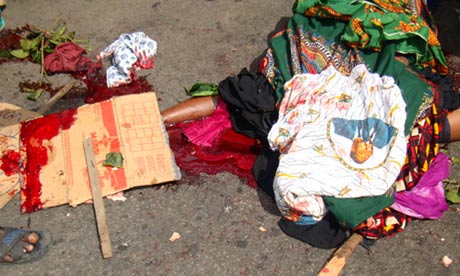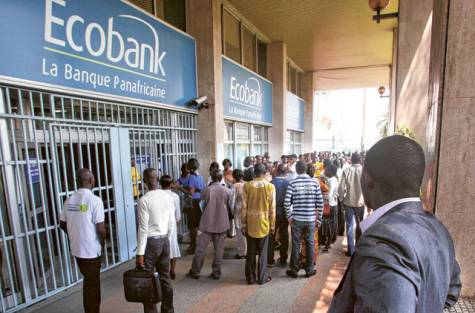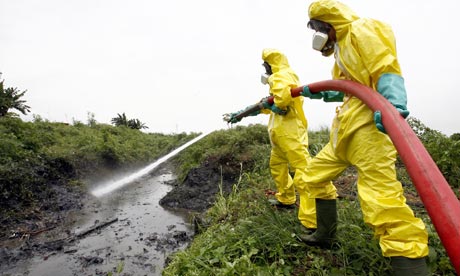Rioting in Haiti. Rationing in America. Queues in Egypt. Protests in Afghanistan. As the price of food continues to soar, the impact is being felt by people around the globe
CHINA
The roaring economy and an ever expanding middle class have had a particularly profound effect on food prices, particularly rice and wheat. Because of industrialisation, rice planting fell from 33 million hectares in 1983 to 29 million by 2006 and China now imports more than ever, placing a major strain on international supplies. Despite freezing prices, rampant inflation means the cost of food has risen by 21 per cent this year.
USA
In a land where supposedly the rich are thin and the poor are overweight, one of the largest cash and carry stores, Sam’s Club, announced this week it would limit customers to take home a maximum of four bags of rice. The move came a day after Costco Wholesale Corp, the biggest US warehouse-club operator, limited bulk rice purchases in some stores and warned that customers had begun stockpiling certain goods.
NORTH KOREA
Even during times of relative stability, North Korea has shown itself to be inept at feeding its population. During the 1990s a famine caused by poor harvests killed an estimated two to three million people. On Wednesday the World Food Programme warned that the country could again be plunged into famine because of the spiralling cost of rice and there was an estimated shortfall of 1.6 million tons of rice and wheat.
EGYPT
Up to 50 million Egyptians rely on subsidised bread and this year Cairo has estimated it will cost $2.5bn. But with the price of wheat rocketing in the past year there are fears the country has plunged into a “bread crisis”. Queues are now double the length they were a year ago. Inflation hit 12.1 per cent in February with prices for dairy goods up 20 per cent and cooking oils 40 per cent
VENEZUELA
Latin American countries were some of the first nations to voice their concern at rising wheat prices, particularly after thousands of people in Mexico took to the streets at the beginning of 2007 to take part in the so-called “Tortilla Protests”. This week the presidents of Bolivia, Nicaragua and Cuba’s vice-president flew to Caracas to announce a joint $100m scheme to combat the impact of rising food prices on the region’s poor.
BRAZIL
On Wednesday Brazil became the latest major rice producer to temporarily suspend exports because of soaring costs and domestic shortages. In recent weeks Latin American countries and African nations have asked for up to 500,000 tons of rice from Brazil which will now not be delivered. Brazil’s agricultural ministry has said it has to ensure that the country has at least enough rice reserves to last the next six to eight months.
IVORY COAST
Some of the worst instability resulting from high food prices has been felt in West Africa. One person was killed and dozens were injured last month as riots tore through Ivory Coast after the prices of meat and wheat increased by 50 per cent within a week. Ivorian President Laurent Gbagbo was forced to cut taxes to halt the disorder. Violent protests have also broken out in Cameroon, Burkina Faso and Senegal.
AFGHANISTAN
There have been street protests about the soaring cost of food in a country almost entirely reliant on imports of wheat. Already utterly impoverished, the plight of Afghans has worsened because Pakistan has cut its regular flour supply. The government has sought to assure citizens that there is sufficient food and has set aside $50m for additional imports. The price of wheat has risen by around 60 per cent in the last year.
THAILAND
The price of rice in the world’s largest exporter rose to $1,000 a ton yesterday and experts warned that it will continue to rise. This is because of the massive demand from the Philippines which is struggling to secure supplies after India and several other producers halted exports. The government has said it can meet the export requests. Indonesia has said it is withholding purchases for a year because prices are so high.
EAST AFRICA
Hundreds of thousands of poor Africans in Uganda and Sudan are to lose out on a vital source of food after one of the world’s largest humanitarian organisations said it was cutting aid to 1.5m people. Dave Toycen, president of World Vision Canada, blamed soaring costs and countries failing to live up to aid commitments for the fact that the number of people the charity can help will fall by almost a quarter.
INDIA
The country as added to the problems facing many countries in the region by halting its export of rice, except for its premium basmati product. This has left countries normally reliant on Indian exports, such as the Philippines, searching for alternative supplies. India has more than half of the world’s hungriest people and its priority is to safeguard domestic supply. But it too has watched as the cost of food has soared, not just rice but cooking oil, pulses and even vegetables. India has this year forecast a record grain harvest but experts warned farm productivity will have to rise much faster if the nation is to feed its 1.1bn people and avoid a food security crisis. Around two-thirds of India’s population are dependent on agriculture for their livelihoods but agriculture is growing much more slowly than the overall economy.
HAITI
The poorest country in the Western hemisphere has seen a three to four-fold increase in the number of so-called boat people trying to leave because of food shortages. Already gripped by wretched poverty, the food crisis triggered riots that led to the death of six people. Haiti’s wretched food security situation is a result of “liberalisation measures” forced on the country after former president Jean-Bertrand Aristide was returned to power.
THE PHILIPPINES
The government has been desperately trying to secure alternative sources of rice to counteract the decision of a number of nations to halt rice exports. The country’s National Food Authority, which handles rice imports for the government, has now said it plans to increase imports 42 per cent to 2.7m tons this year. This could cost $1.3bn if it does not increase the price of the subsidised rice it is selling to people. But the Philippines is responsible for producing 85 per cent of its own food and international experts believe the country will handle this crisis. The government has also been encouraging consumers and even fast food restaurants to be more frugal and be careful not to waste food. The government is confident it will be able to source sufficient supplies from Vietnam and Thailand.
EUROPE
Less vulnerable to food price fluctuations than emerging nations, but food prices across Europe have nonetheless increased. In Britain wholesale prices of food have increased by 7.4 per cent over the past 12 months, roughly three times the headline rate of inflation. According to the government’s own statistics grocery bills have gone up by an average of £750 over the same period, the equivalent of a 12 per cent rise.
By Jerome Taylor and Andrew Buncombe
Friday, 25 April 2008
Source: The Independent




